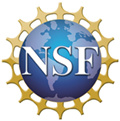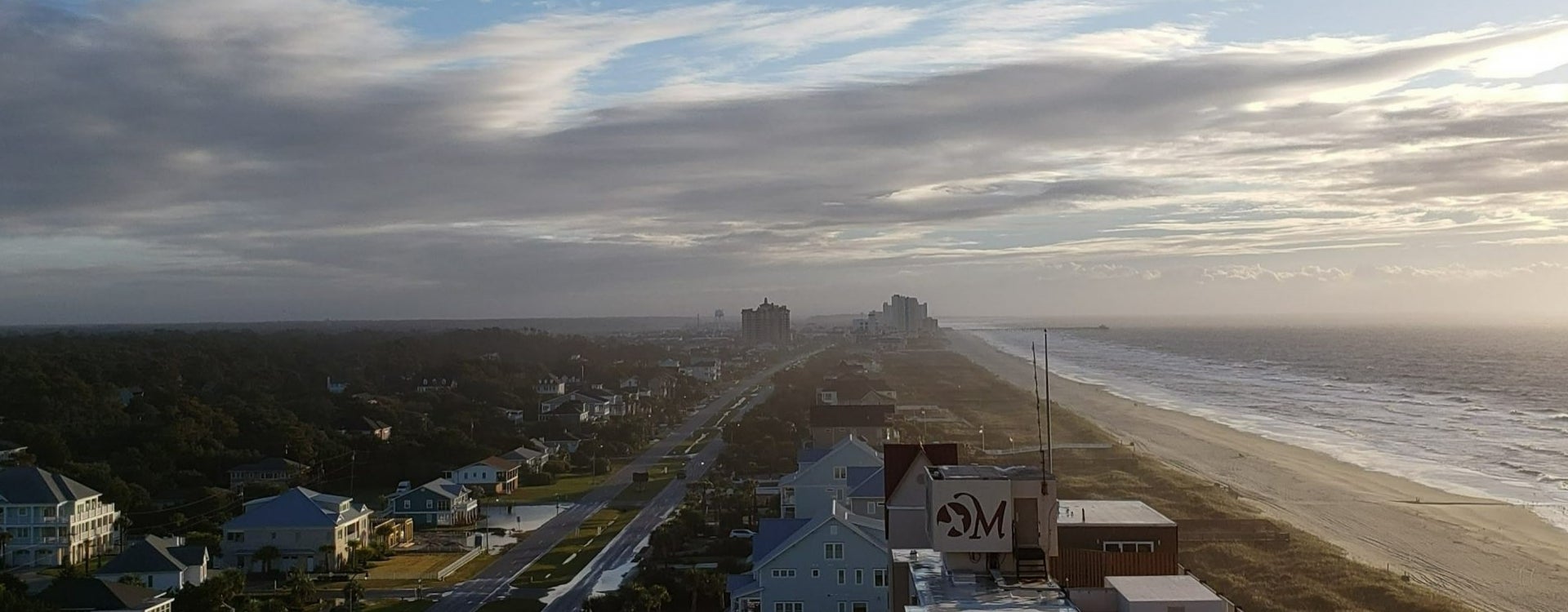CCEDS NRT Program
Welcome to the Coastal Community Environmental Data Scholars (CCEDS) NRT Program
If you are a graduate student who wants to use data to make a difference in communities, then CCEDS is the program for you!
What is CCEDS?
Coastal Community Environmental Data Scholars (CCEDS) is a National Research Traineeship (NRT) program that aims to increase the number of graduate students using data science to address real-world environmentally-related problems facing communities. Students in the CCEDS Traineeship program will complete a unique set of activities that will prepare them for success in applying data science within a broad range of problems related to environmental, community, and health-related problems.
Trainees in CCEDS will benefit from:
- A graduate certificate in Interdisciplinary Applied Data Analytics Graduate Certificate Program (IADA)
- Community research partnerships and training through the Engagement and Outreach Scholars Academy
- Access to unique training opportunities that include science communication courses, workshops highlighting the practical use of data science, and think-tank-style retreats where participants learn team skills to solve real-world problems.
- A supportive community that includes peer support and even training for your research advisor to help you succeed as a data scientist!
What CCEDS is NOT:
CCEDS is NOT a degree program. ECU students from any graduate M.S. or Ph.D. program are welcome to participate in CCEDS as a trainee and have access to the many programs, benefits, and community provided through CCEDS.
Why is a training program like CCEDS needed?
For many students entering graduate school, data science is an unfamiliar and, let’s face it, scary thing. Despite the fact that all scientists use data every day, it is easy to hear someone use jargon that makes us feel like an imposter when we call ourselves “data scientists”. CCEDS is focused on overcoming these imposter feelings as students become proficient in applying data science methods to research problems that can both advance science and be relevant to communities. In fact, preparing students for a workforce that is ready to apply data science to solve critical societal problems is a key reason why we have started the CCEDS program. Whether you want to make a difference in our communities and are just learning what data science is or you are a whiz with machine learning and looking to apply your skills to new applications, there are no imposters in CCEDS!
Learn more about imposter feelings from this recent story on NPR: click here to listen!
Meet the Program Leadership Team
Stephen Moysey, Ph.D. | Professor of Geological Sciences and Director of the Water Resources Center
Ariane Peralta, Ph.D. | Associate Professor of Biology and Director of the Interdisciplinary Doctoral Program in Biology, Biomedicine, & ChemistryRosana Ferreira, Ph.D. | Professor of Applied Atmospheric Science and Director of the Integrated Coastal Sciences Doctoral Program
Mark Bowler, Ph.D. | Associate Professor of PsychologySharon Paynter, Ph.D. | Chief Innovation and Engagement Officer and Interim Chief Research OfficerRebecca Asch, Ph.D. | Associate Professor of Biology and Director of the Interdisciplinary Applied Data Analytics (IADA) Graduate Certificate ProgramRandall Etheridge, Ph.D. | Associate Professor of Engineering and the Center for Sustainable Energy and Environmental Engineering
Grace Gavigan | CCEDS NRT Program CoordinatorPatricia Moore Shaffer, Ph.D. | President, Shaffer Evaluation Group
Application Process
Applications are OPEN to join the next CCEDS cohort in the fall of 2025. The deadline to apply is March 7, 2025. Applications are welcome from students with existing funding sources as well as those applying for funding through the CCEDS NRT program.
Students from any graduate program at ECU may apply to be a CCEDS Trainee and take part in the training activities funded by the program. Being a NRT Trainee is prestigious and will provide you unique, nationally recognized experiences that will better prepare you for a career in academia, industry, or government. Students within ECU’s Ph.D. programs in Integrated Coastal Sciences or Biology, Biomedicine, and Chemistry can also apply for funding through the CCEDS program. This funding will provide an enhanced graduate assistantship equivalent to $34k/yr for the year and half that graduate student trainees are completing requirements in the CCEDS traineeship (subject to continued availability of grant funds).
Master’s students from relevant programs may also apply to the CCEDS NRT program and are eligible for one year of funding, which will typically be applied in the second semester of your first year of study and first semester of your second year of study. Funding is contingent upon successful completion of CCEDS traineeship program elements and subject to continued availability of grant funds. Please contact Grace Gavigan if you are interested in applying as a MS student to learn more about what CCEDS program requirements you are expected to complete as a Trainee.
Students with funding from other sources (e.g., grant funded RAs or TAs) and international students (both PhD and MS) are welcome to apply to become a CCEDS NRT Trainees to receive all of the valuable training benefits from the program! International students are not, however, eligible for funding through the program.
From the NSF NRT Solicitation: “NRT trainees must be master’s and/or doctoral STEM students in a research-based degree program that requires a thesis or dissertation. NRT stipends and support for customary costs of education (tuition and required fees) are limited to U.S. citizens, nationals, and permanent residents. However, international students can participate as non-stipend-supported NRT trainees or as non-trainees.”
To learn more about the CCEDS NRT Program, please visit the CCEDS NRT Informational Session slides.
CCEDS NRT Program Components
| Technical Training & Scientific Skills | |
|---|---|
| The Interdisciplinary Applied Data Analytics Graduate Certificate Program (IADA) | The certificate program will guide graduate students to obtain the quantitative technical skills needed to analyze and evaluate coastal change drivers based on observational data and modeling. The program will provide students with technical skills to join the applied data science workforce. |
| “Retooling” Seminar | A traditional invited speaker series on innovative approaches to environmental sensing and measurement technologies interwoven with deep dive sessions on design-based thinking. |
| Convergent Science Courses & Challenge | Activities that integrate transdisciplinary science and teamwork within existing PhD courses combined with an annual intensive summer team-based research experience focused on solving community-inspired research problems. |
Learn more about the IADA Graduate Certificate Program
| Science Communication | |
|---|---|
| Science Communication Bootcamp | Intensive introduction to theories supporting effective science communication and the technologies available to create multimedia content. |
| Science of Storytelling Course | A project-oriented course where students will focus on the application of science communication principles using multiple modalities, perspectives, and audiences. Students will learn to bring their personal voice to a story and to amplify the voices of others, thereby exploring identities and experience through engagement with diverse communities and industry role models. |
| Community Engagement | |
|---|---|
| Engagement and Outreach Scholars Academy (EOSA) | Workshop-based professional development for community-engaged research that supports a culture of partnership, reciprocity and high-quality scholarship. Training includes tenets of engagement, principles of partnerships, the value of partnership memoranda, research methods congruent with the scholarship of engagement (SOE), team building skills, ethics, and ways to identify team members’ strengths. |
| Community Science Practicum | Trainees will lead a team of undergraduate students participating in course-based undergraduate research in a focused community-engaged research project developed during the Academy. Projects may be extensions of work occurring in ECU’s established faculty version of EOSA or may be developed independently if it is expected to become a substantial component of the Trainee’s dissertation work. |
| Personal and Professional Development | |
|---|---|
| Coffee Rings Peer Mentoring | Weekly discussion sessions that follow a curriculum designed to explore factors influencing personal identity and self-efficacy as well as ethics and professional skills. |
| Career Fear Mentoring | A faculty development program on student mentorship, aimed at mediating anxiety and attitudes that negatively impact self-efficacy and career growth. |
We invite faculty and staff to take part in working groups and subcommittees as an active part of the program!
Current standing committees include:
- Admissions Committee
- Data Science Steering Committee
- Community Science Committee
Why you should join the CCEDS NRT Program
Contact us!
For more information about the program, please contact us at water@ecu.edu.
NSF Award Information | NRT-HDR 2125684 | Finding signal in the noise to enable science-based community responses to change in coastal regions


